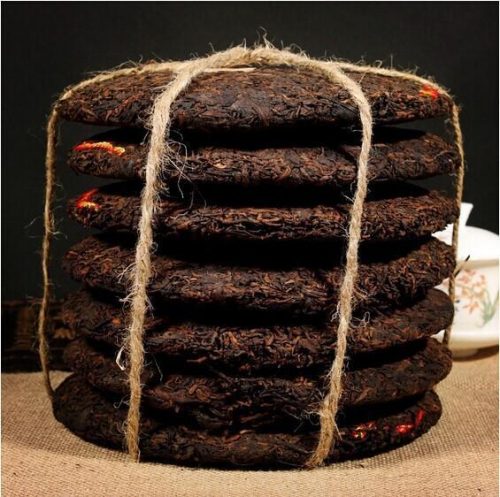by Constantine Cavafy
Ithaka is a poem about enjoying the journey as much as the destination, as recited in Greek and English:
by Constantine Cavafy
Ithaka is a poem about enjoying the journey as much as the destination, as recited in Greek and English:
An explosion on this day in 1931 impacted a section of railway track owned by the Japanese in north-eastern China near Mukden. The blast was weak and displaced less than 2m of track.
It was quite different from an explosion three years earlier, set by Japanese intelligence, which had assassinated the warlord of Manchuria. The 1928 explosion, also on Japanese-owned tracks, was intended to instigate a Japanese invasion. Instead it ended up having the reverse effect and received international condemnation. The large explosion and death led to Manchuria moving further from Japanese control instead of under it.
So, in 1931 after a far smaller explosion and with trains still passing over the damaged section of track, militant factions of government in Japan claimed the need for an emergency response. Invasion was launched under the pretense to secure Japan’s railway, their nationals and defend their colony in Korea against Russia. Economic interests were also obvious; a large market and source of resources was highly desireable to the Japanese after Western markets shutdown in 1929 with the start of the Great Depression.
The Chinese, weakened by civil-war, failed to bring forward any coordinated resistance. The Japanese army swiftly took hold of the entire region and declared a new autonomous state of Manchukuo. Western countries, unlike the 1928 incident, no longer were in a position to intervene or respond to Chinese requests for assistance.
Four days after the 1931 Mukden incident the US Minister in China reported by telegram to the US Secretary of State that the Japanese act was planned aggression.
According to all information available to me here, I am driven to the conclusion that the forceful occupation of all strategic points in South Manchuria, including the taking over and operation of public utilities, banks, and in Mukden at least the functions of civil government, is an aggressive act by Japan apparently long planned and when decided upon most carefully and systematically put into effect. I find no evidence that these events were the result of accident nor were they the acts of minor and irresponsible officials.
The US Secretary of State, based on advice from his ambassador in Japan, opposed the use of a formal League Commission of Inquiry due to fear of further emboldening hawks in the Japanese government. Instead he issued a diplomatic non-recognition statement, known as the Stimson Doctrine. This, similar to the League of Nations efforts that the Japanese simply walked away from, had little to no influence on the conflict.
While it was clear Japanese militant leaders had used false-pretense to breach the post-WWI agreements on peace, nonaggression and disarmament they also faced little tangible resistance and they flatly refused to stand down.
Occupation of Manchuria by Japan soon expanded in threat; the stage was set for escalation into the Second Sino-Japanese War in 1937 and destabilization/expansion into the region, which eventually led to the bombing of Pearl Harbor in 1941.
It’s all food for thought given the debate over premeditation of the recent incident in Libya and the rising territorial resource conflict between China and Japan.
You may remember when I wrote about the tragedy of an endangered polar bear killed after live ammunition was “accidentally” fired by BP. A re-enactment of a sea battle between old tall ships off the coast of southern Orange County, California just went awry when one of them fired a real round.
Law enforcement officials said a crew member made an unfortunate mistake when the Amazing Grace cannon ran out of blanks that were to be fed into it and fired in the direction of crew members aboard the Bill of Rights, the other tall ship taking part in the reenactment.
The crew member mistakenly grabbed a box of buckshot ammunition. (The boxes apparently look similar, authorities said.)
The spray of pellets left two people aboard the Bill of Rights injured and stunned.
Can anyone answer why an historic tall ship with cannons is carrying actual buckshot ammunition? The LA Times doesn’t raise the obvious question.
“The plan is never to shoot live ammunition,” said Bentley Cavazzi, chief operations officer for the Ocean Institute, which has hosted the festival in Dana Point Harbor for 28 years.
Here’s what would make more sense, do not carry live ammunition if you never plan to shoot it. Then audit for compliance; confirm no ammo on board before taking passengers. And of course hold someone at the top level like the COO liable for mistakes.
When an historic ship absolutely must carry the live ammunition (there must be a reason somewhere) make sure it is clearly labeled and separate (e.g. requires authentication and authorization). Lock and label the ammo.
Note, the Amazing Grace is harbored in San Diego where another infamous mis-fire happened recently. Of course the ship’s cannon technology is too old to use the computer virus excuse.
Below is a video from last year of the re-enactment. Shots are fired at 1:55, when you can see the tiny/mock cannons (which use shotgun shells) on the Amazing Grace.
 Once upon a time as a student I wandered the empty, dark and wet streets of London in search of coffee. No place seemed to serve the stuff I had become accustomed to in America. How was I expected to work through the night without a pot of hot black coffee? A lonley Dunkin Donuts near the corner of Kingsway and High Holborn became my solace.
Once upon a time as a student I wandered the empty, dark and wet streets of London in search of coffee. No place seemed to serve the stuff I had become accustomed to in America. How was I expected to work through the night without a pot of hot black coffee? A lonley Dunkin Donuts near the corner of Kingsway and High Holborn became my solace.
I was living in a city of half-empty jars of instant coffee powder and nothing better. Pub and restaurant staff would give me a look of confusion after I would order coffee but then protest “That’s not what I meant. That’s not coffee.” Their response? “So do you want tea then?” No. I didn’t want tea. Thank you Dunkin Donuts for keeping a pot of hot black coffee on for me. Sorry I never ate the donuts.
Perhaps the problem was one of marketing. Nescafe was an influential voice for so long (since 1938 — per the ad above) that by 1993 the UK still was under the impression that Americans stirred a spoonful of flavored sawdust into a cup of hot water…and why would anyone want to drink that rubbish when they could take tea, scotch or beer? I told native Londoners about my quest for coffee but they just snickered and said “I s’pose you also want peanut-butter, a shower and a burrito? Haha!”
A few years after I navigated the troubled waters of coffee in London I headed north to explore throughout the highlands of Scotland; sampling scotch to study the ingredients, methods of distillation and general history.


This awoke my fascination with whiskey and small-batch bourbons back in America. I found it curious how Jim Beam had created in the late 1980s four low-cost brands of single-barrel bourbon that were far less expensive than the mainstream brands but of better quality. Things were going smoothly until I witnessed a big change. Prices sky-rocketed in America as quality diminished or was made constant. The price for Knob Creek doubled from $16 to $32 in just two or three years. The need to understand process and ingredients (e.g. the search for a particular bean and roaster, the hunt for a single-barrel or for a particular bottler) lost meaning and value.
It became a question of just which giant conglomerate was running brands and for what margin (Bush Pilot was forced out of production by American lawyers, Lagavulin reduced production and sold to Diageo*, and Laphroig was acquired. As far as I can tell there is now only one independent distillery in Scotland. Oh, and Starbucks were popping up all over London). The challenge to learning about roasters or distilleries and their details…gone. Consistent mediocrity replaced the risk of dealing with inferior and superior quality. It was like the scene in Kubrick’s 2001 when all food and drink is reduced to baby-formula, even for adults.
Meanwhile, during the fall and decline of interest in other beverages, I was repeatedly exposed to tea. I mean I always had been interested in the odd tea, especially some of the stranger herbal collections from Minnesota and Colorado like Morning Thunder Barley and Good Earth, but I soon realized it was undervalued, open to innovation and incredibly complex. By 2007 I found myself exploring it like never before and paying more attention to the risks and rewards of discovery.
Along came Pu-erh
After many many days wandering through tea shops it seemed to me that I was using the same taste filters for tea that I had for coffee and whiskey; I was finding full-bodied smokey or woody flavors with a touch of bitter and a sweet aftertaste.
One day I stumbled upon the fact that a post-fermented tea from the Yunnan province in China, called Pu-erh, fit the profile more than perfectly. Not only can it replace coffee in taste and effect, it blows away any residual fondness I had for coffee culture (with the exception of drinking Bedouin hot coffee under the noon-day sun in the desert):
One cup of coffee for the guest, one for enjoyment and one for the sword
In short, Pu-erh provides the procedures and smooth mental stimulant effects without any of the side-effects of coffee.
Further research has really opened my eyes to a deep sea of details. While coffee and whiskey had a few things to ponder, ancient Chinese tea goes to an absurdly further level. It’s beyond even ancient beer and wine. Here are some of my notes so far:

How to buy Pu-erh today
That’s just a tiny snapshot of the huge amount of background information that has formed over many centuries. I don’t recommend skipping it or ignoring it as it impacts the final step in selecting a Pu-erh. But first you have to consider a large variety of production and source factors like the source of leaf, style of farming, season, and ten different grade levels.
Leaves are sourced from bushes, cultivated trees or wild trees. Farming styles can be modern plantations (e.g. fertilizers and pesticides), ancient gardens or foraging/wild. Believe it or not the ancient tea industry is thus linked with the new and vibrant organic and sustainability movement in China. The Pu-erh vendors I have come to know tend to be highly educated and very particular about heathy food without additives or chemicals. The seasons are fairly obvious; they basically start after the Chinese new year (March) and are related to moisture. Then the ten grade levels are based on where a leaf is on the branch. Older leaves towards the trunk are high numbers while leaves near the bud end of the branch are lowest. All of that has to come before you take into account, as mentioned above, how the leaves are shaped, packaged and stored.
It’s a fantastic experience to find a good Pu-erh. In summary, my experience has been that not only does it have the stimulant effect of coffee, bringing the kind of mental clarity and energy that writers/coders crave, but also it offers the complexity of flavors that you would find in fine whiskies.

Bonus: unlike American tea bags, which are tasteless after one steep, the Pu-erh tea leaves can be reused at least five or six times. I often use them ten times. Preparation of Pu-erh is a discussion for another day. They are so full of flavor that even after being brewed many times the used leaves can be put in a pot of water to boil eggs in them or they can be added as the secret ingredient to the now famous San Francisco Burmese fermented tea salad.
Enjoy!
*My ’84 Lagavulin 17yr seemed to quadruple in value after the distillery was sold